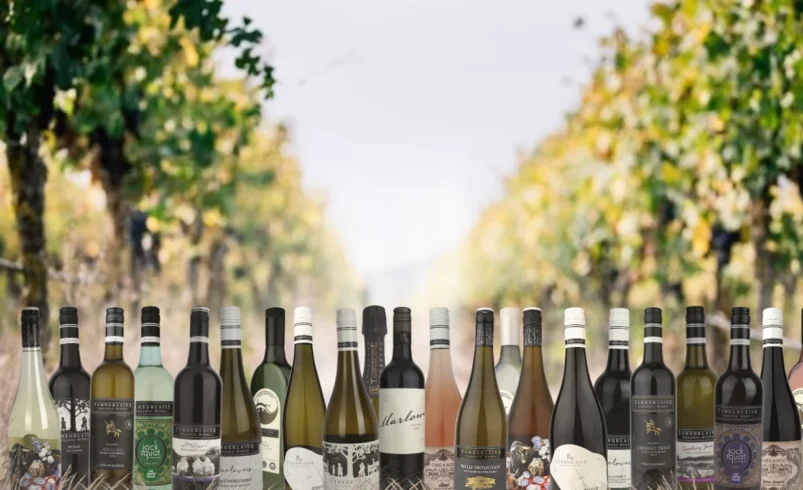Sipping on Sustainability: The Rise of Organic White Wine

The movement towards sustainability has taken firm root in the global wine industry, with an increasing number of consumers and producers alike turning their attention to eco-friendly practices. In this context, organic white wine has emerged not just as a niche product for the environmentally conscious but as a choice for anyone who values quality and eco-responsibility in their tipple.
Understanding Organic Viticulture
Organic viticulture refers to the practice of cultivating grapes without the use of synthetic chemicals, such as pesticides, herbicides, or synthetic fertilisers. Instead, it promotes biodiversity, conserves water, and uses organic fertilisers to create a balanced ecosystem within the vineyard. This approach nurtures the soil and the vines, supporting the growth of grapes that reflect the terroir – the natural environment in which they are grown.
The move towards organic viticulture is part of a broader shift in agriculture, mirroring consumers’ growing preference for organic products. People are becoming more aware of the impacts of conventional farming on the planet and their health. Consequently, organic white wine is celebrated not only for its environmental credentials but also for its potential health benefits, as it contains lower levels of chemicals.
The Benefits of Organic White Wine
One of the most lauded benefits of organic wine production is the reduced chemical runoff into nearby water sources, which can lead to healthier ecosystems and less polluted drinking water. A switch to organic practices also encourages a wider range of wildlife to inhabit the vineyards, promoting natural pest control through a healthy predator-and-prey balance.
For the consumer, drinking an organic white wine can be a more pleasurable experience. Advocates argue that without the interference of synthetic chemicals, the wine is a true expression of the grape’s characteristics, offering a purer aroma and taste. This perceived purity is a compelling selling point for those seeking a wine that connects them more directly with the nature it originated from.
The Challenge of Conversion
Converting a conventional vineyard to an organic one is not without its challenges. The transition period, often lasting several years, requires significant investment and a new set of farming skills to master. Vineyards transitioning to organic practices must operate without synthetic aids, often leading to reduced yields, and potentially, financial strain in the short term.
Despite these hurdles, many producers have persevered, driven by a combination of environmental ethics and confidence in growing market demand for organic wines. As these wines gain in popularity, the economies of scale may improve, making organic viticulture an increasingly viable and appealing approach.
Consumer Demand Fuelling Growth
Market trends suggest a robust growth in the demand for organic wines. Consumers drawn to organic foods for their cleaner growing practices naturally extend their preferences to the wines they consume. Millennials, in particular, are a driving force behind this shift, as they tend to favour products that align with their values of sustainability and wellness.
Moreover, the rise of e-commerce platforms specialises in organic and biodynamic wines, making it easier than ever for consumers to access these products. Wine enthusiasts can browse and purchase an array of organic white wines from the comfort of their homes, often with detailed information about the wine’s origin, production methods, and tasting notes.
Label Confusion and Certification
Understanding what constitutes an organic wine can be rather confusing for consumers. Different countries have varying regulations and certifications that govern what can be labelled as ‘organic’. In some regions, wines can be made with organically grown grapes but are not considered organic due to the addition of certain sulfites during production.
Certification is crucial – it assures consumers that the wine they purchase meets strict organic standards. Producers of organic wine must navigate these complex regulations to ensure that their bottles carry seals of approval that are recognised by consumers, adding to the layers of challenge in organic wine production.
Organic White Wine in the International Market
Globally, countries renowned for their winemaking traditions, such as France, Italy, and Spain, have seen significant growth in organic viticulture. New World wine regions, including Australia and California, are also carving out a substantial niche in the organic wine market with innovative approaches to sustainable winemaking.
Australia, in particular, has witnessed burgeoning success in this sector. The country’s climate, often hot and dry, is conducive to organic grape growing, which favours minimal intervention. Australian producers are increasingly showcasing that quality wines can be produced sustainably, and in turn, they are making a strong impression on the international market.
Looking to the Future of Viticulture
The future of viticulture lies, to a great extent, in sustainable practices. As the world grapples with the urgent need for environmental conservation, organic wine stands as a testament to what the industry can achieve through eco-conscious methods. Not only does it preserve the environment, but it also offers consumers a product that aligns with a healthier lifestyle and a more ethical approach to consumption.
In pursuit of sustainable pleasures and eco-responsibility, sipping on an organic white wine is an enjoyable way to support the environment. With the ongoing rise in demand, it’s an exciting time for both wine producers and consumers. The industry is proving that it’s possible to indulge in a fine glass of wine while caring for the planet—a win-win for everyone.
Ultimately, the rise of organic white wine symbolises a positive shift towards sustainability in the global wine industry – a trend that shows no signs of abating. As more vineyards adopt organic practices and more consumers demand environmentally friendly products, the industry is set to evolve, with sustainability at its core. This is a toast to the planet – one that tastes good and feels right too.





